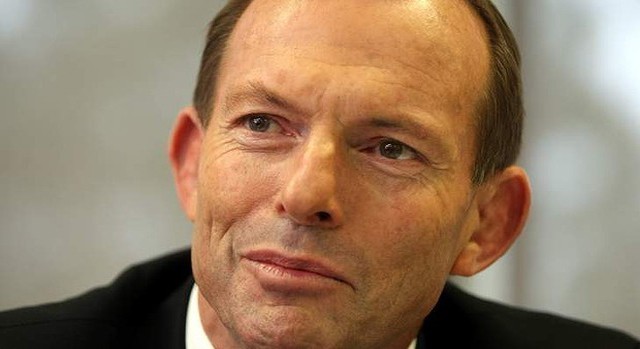Today legislation will be introduced into the ACT Parliament to legalise same-sex marriage. Will it be frustrated by federal power yet again? Perhaps not, explains Kevin Boreham
The ACT Legislative Assembly will today begin legislating for marriage equality, putting Prime Minister Tony Abbott in a dilemma: He can either try to override the ACT legislation, stirring up an issue he recently derided as “the fashion of the moment”, or put up with Canberra as the same sex marriage capital of Australia, possibly soon to be followed by Sydney.
The ACT Attorney-General, Simon Corbell, will introduce a Bill in the ACT Legislative Assembly today.
It’s expected to pass in October with the support of the Labor Party and Greens member Shane Rattenbury.
Efforts by the ACT to legislate on same-sex relationships have previously been frustrated by both Labor and Coalition governments.
The ACT Legislative Assembly first legislated to recognise civil unions in 2006, but the legislation was disallowed by the Governor-General, on the advice of Attorney-General Philip Ruddock that the ACT legislation equated civil unions with marriage.
The ACT government attempted to re-introduce the 2006 legislation in 2008 but was again thwarted.
The Rudd government Attorney-General Rod McClelland said on 4 May 2008 that “the Government made clear to the ACT that it would not accept legislation that mimics marriage” in accordance with the Labor Party platform.
The ACT government moved amendments to its legislation to remove the offensive provisions which allowed people to solemnise their union by a ceremony rather than merely register it.
The ALP has come a fair way since this shameful episode. Labor changed its national platform at the 2011 National Conference to support marriage equality, and to amend the Marriage Act to remove the 2004 provision which defined marriage as the union of a man and a woman.
Former Prime Minister Rudd has become an advocate of marriage equality; both contenders for the Labor leadership, Anthony Albanese and Bill Shorten, and the Labor government’s last Attorney General, Mark Dreyfus, all voted for the unsuccessful marriage equality Bill in 2012.
The Commonwealth Government can no longer disallow ACT legislation as the Howard government did in 2006.
Parliament in 2011 removed the Governor-General’s power to disallow ACT legislation.
However, the Commonwealth Parliament still has the power under section 122 of the Constitution to make laws for the ACT.
So Parliament could override the ACT marriage equality legislation, but this would require a vote by both the House of Representatives and the Senate.
As the ALP and the Greens currently hold a majority in the Senate, this would not succeed.
The Abbott Government could try again with the new, minor-parties dominated Senate after 1 July 2014.
In the meantime, the New South Wales Parliament may also pass marriage equality legislation.
The Standing Committee on Social Issues of the NSW Legislative Council reported in July that the New South Wales Parliament has the power to legislate on same-sex marriage but that such a law could be challenged in the High Court under section 109 of the Constitution, as inconsistent with Commonwealth law.
Such a challenge would have to come from the Commonwealth Government as opponents of same-sex marriage probably lack legal standing to bring an application before the High Court.
A cross party group of NSW parliamentarians have drafted a same-sex marriage Bill that will be introduced in the upper house of the NSW Parliament in the current session.
NSW Premier Barry O’Farrell has promised a conscience vote on the issue.
Abbott has made it clear that he remains opposed to marriage equality and discourages any expectation that he will move the issue forward. Given the legislation in the ACT, and possibly NSW, he will be forced to decide whether to act against marriage equality.
Can he consistently refuse to consider the issue in the Commonwealth Parliament but at the same time give priority to frustrating it in other Australian jurisdictions?
Author: Kevin Boreham
Publication: newmatilda.com
Date: 19 September 2013

